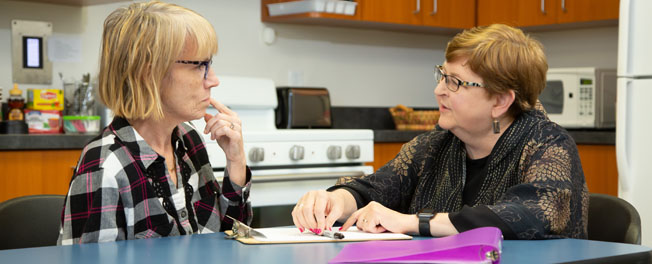
Community Reintegration After Stroke Laboratory
General Laboratory Description
Dr. Connor directs the Community Reintegration after Stroke Laboratory, which focuses on research to quantitatively model recovery and community reintegration in stroke survivors. This work aims to understand the barriers and facilitators to participation in everyday life activities after stroke to guide and optimize the delivery of rehabilitation interventions. The overarching goal of this work is to create evidence-based, targeted interventions to enable people post-stroke to participate more fully in community life.
Current research projects include:
- Examining the extent to which cognitive abilities and functional cognition predict participation in cognitively demanding activities
- Examining the aphasia-specific, stroke-specific and aging factors that predict participation
- Examining the extent to which apathy and cognitive fatigue predict participation
- Investigating the nature of activity participation itself
General Description of Student Activities
Students will have the opportunity to receive training in and participate in a variety of research activities with clients who have had a stroke, such as scheduling and testing research participants and conducting focus groups and assessments. In addition, students will assist in training sessions, data entry, qualitative or quantitative data analysis, and writing peer-reviewed articles. Students will learn supported communication techniques for including people with aphasia in research studies.
Examples of Projects
- Do post-stroke participation measures tap the same underlying construct?
- Self-perception of function predicts participation in cognitively and physically demanding activities after stroke
- Positive social support predicts social participation in people with aphasia after stroke
- The role of mental health in participation post-stroke
PhD Mentor Information
Dr. Connor’s research focuses on understanding factors that promote and inhibit occupational performance and participation after mild-to-moderate stroke in individuals living in the community. Recognizing that maximizing participation after stroke requires the understanding of multiple contributors, the laboratory takes an individual differences approach to this research topic. The lab investigates participation and five additional domains that we believe contribute to successful community participation: health consequences of stroke, communication skills, cognition, emotional health, and environmental factors, including social support. Further, the lab examines whether people with aphasia have a particularly difficult time participating in community activities. To address these questions, surveys and paper and pencil assessments are used to probe participants' perception about their participation and to obtain measures of their abilities and environmental context. The goal of this research program is to create an evidence-based model of participation after stroke and determine whether changes experienced after stroke are age-related, stroke-related, or aphasia-related or some combination of these factors. The lab will use this quantitative model to create interventions that target the most important predictors of successful community reintegration for those who experience a stroke.
Dr. Connor’s research also investigates the tools used to measure participation in the literature and the nature of participation in activities themselves. This work will establish whether existing tools tap a single, unitary construct of participation, or whether participation is multidimensional. Additionally, the lab measures the demands that activities require to complete them to test the hypothesis that a match between personal or environmental factors and activity demands is predictive of participation after stroke.
Research Foci
- Determining the extent to which age-related, stroke-related or aphasia-related factors predict participation after stroke
- Examining the extent to which cognitive ability or self-perception of cognitive ability predict participation in cognitively-demanding activities
- Determining the extent to which social support facilitates participation and whether social support differentially benefits people with aphasia
- Assessing the extent to which emotional health predicts participation
- Establishing the psychometric properties of participation measures
- Developing biopsychosocial models that distinguish between factors important for performance versus participation
Current PhD Students
Yejin Lee, MSOTSamantha Randolph, MA

